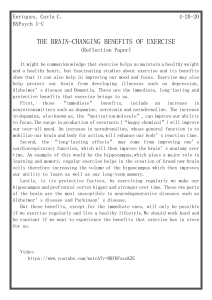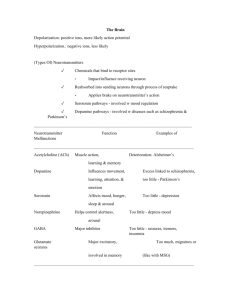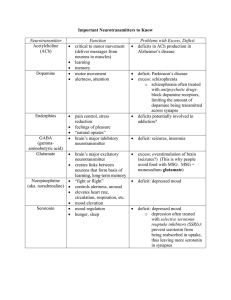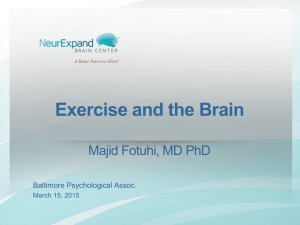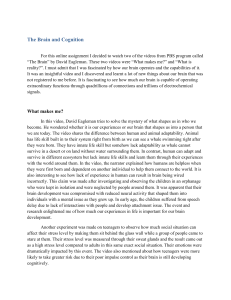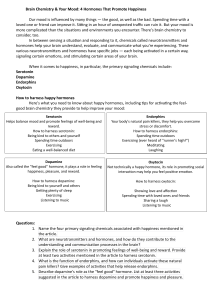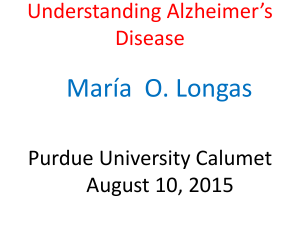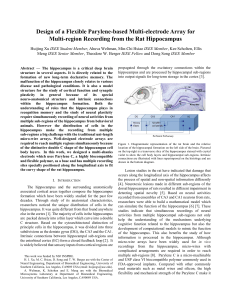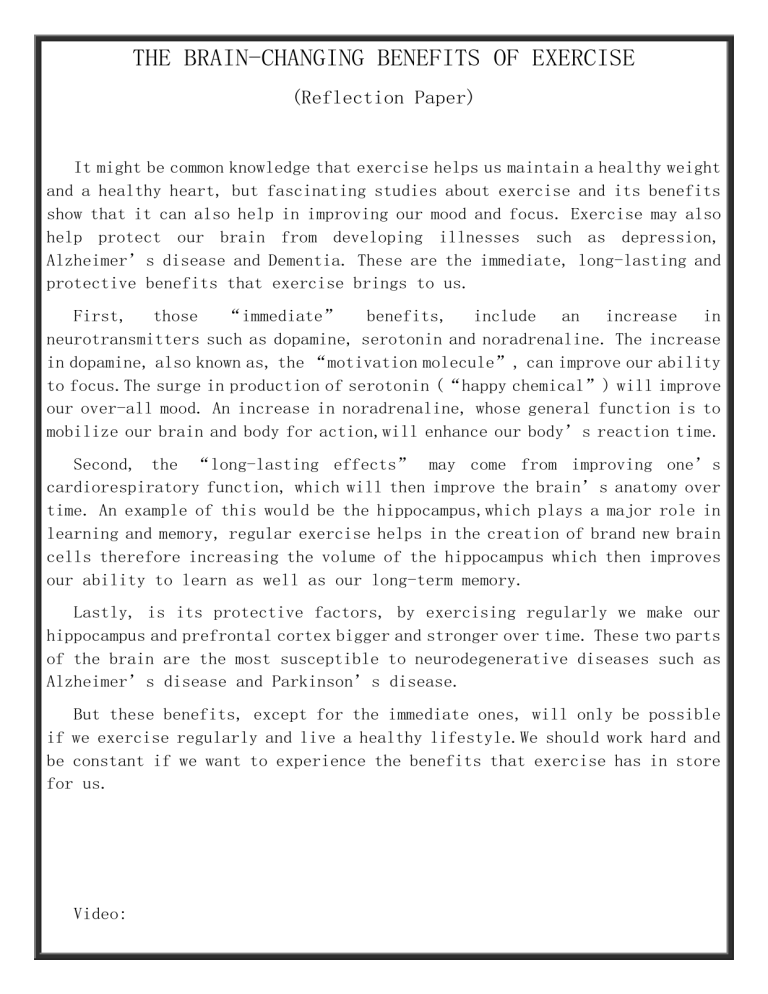
THE BRAIN-CHANGING BENEFITS OF EXERCISE (Reflection Paper) It might be common knowledge that exercise helps us maintain a healthy weight and a healthy heart, but fascinating studies about exercise and its benefits show that it can also help in improving our mood and focus. Exercise may also help protect our brain from developing illnesses such as depression, Alzheimer’s disease and Dementia. These are the immediate, long-lasting and protective benefits that exercise brings to us. First, those “immediate” benefits, include an increase in neurotransmitters such as dopamine, serotonin and noradrenaline. The increase in dopamine, also known as, the “motivation molecule”, can improve our ability to focus.The surge in production of serotonin (“happy chemical”) will improve our over-all mood. An increase in noradrenaline, whose general function is to mobilize our brain and body for action,will enhance our body’s reaction time. Second, the “long-lasting effects” may come from improving one’s cardiorespiratory function, which will then improve the brain’s anatomy over time. An example of this would be the hippocampus,which plays a major role in learning and memory, regular exercise helps in the creation of brand new brain cells therefore increasing the volume of the hippocampus which then improves our ability to learn as well as our long-term memory. Lastly, is its protective factors, by exercising regularly we make our hippocampus and prefrontal cortex bigger and stronger over time. These two parts of the brain are the most susceptible to neurodegenerative diseases such as Alzheimer’s disease and Parkinson’s disease. But these benefits, except for the immediate ones, will only be possible if we exercise regularly and live a healthy lifestyle.We should work hard and be constant if we want to experience the benefits that exercise has in store for us. Video: https://www.youtube.com/watch?v=BHY0FxzoKZE
